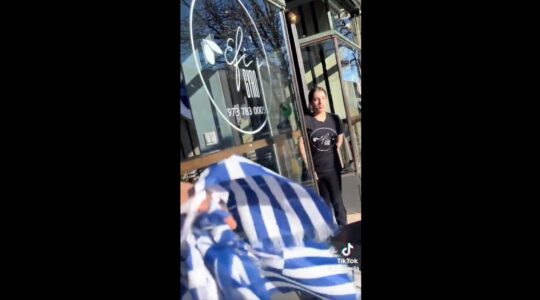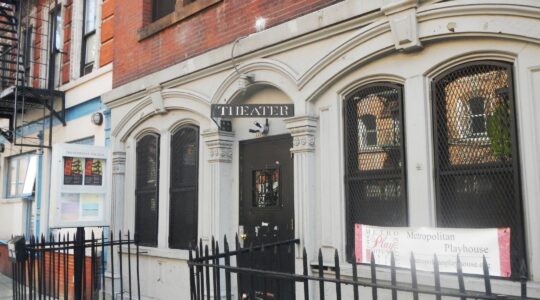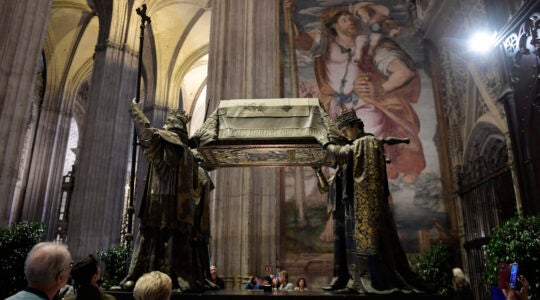In a column titled "Revolutionary Anti-Semitism," Mary Anastasia O’Grady argues that what’s at stake in the fight over the presidency in Honduras is whether Hugo Chavez can import Ahmadinejad’s ideology to Latin America:
The Honduras debate is not really about Honduras. It is about whether it is possible to stop the spread of chavismo and all it implies, including nuclear proliferation and terrorism in Latin America. Most troubling is the unflinching support for Mr. Zelaya from President Barack Obama and Democratic Sen. John Kerry—despite the Law Library of Congress review that shows that Mr. Zelaya’s removal from office was legal, and the clear evidence that he is Mr. Chávez’s man in Tegucigalpa. On Thursday, Mr. Kerry took the unprecedented step of trying to block a fact-finding mission to Honduras by Republican Sen. Jim DeMint, who is resisting Mr. Obama’s efforts to restore Mr. Zelaya to power. …
The verbal attack on Jews from a zelayista is consistent with a pattern emerging in the region. Take what’s been going on in Venezuela. In the earliest years of Chávez rule, a Venezuelan friend, who is a Christian, confessed his fears to me. "In his speech, he always tries to create hate between groups of people," my friend told me. "He loves hate speech." …
Neither Venezuela nor Honduras has any history of anti-Semitism. But with Mr. Chávez importing Mr. Ahmadinejad’s despicable ideology and methods, an assault on the Jewish community goes with the territory.
A few weeks ago, the Forward reported that U.S. Jewish groups are divided over the fight in Honduras:
The recent return of Honduras’s ousted and expelled president to his country is not an issue in which the Jewish stakes are clear or obvious. But Jewish groups are nonetheless taking sides over the turmoil roiling the Central American country and over the Obama administration’s stand on developments there.
On September 4, two weeks before President Manuel Zelaya snuck back into Tegucigalpa, Honduras’s capital, the Jewish Institute for National Security Affairs called on Secretary of State Hillary Rodham Clinton to reverse the administration’s position and support Zelaya’s overthrow. Zelaya was democratically elected in 2006. But the group, which is primarily devoted to promoting strong military ties between Israel and the United States, was concerned that Zelaya was leading the country away from democracy and into alliances with Venezuelan President Hugo Chavez at the time of his overthrow.
“Zelaya was a man who was moving towards Chavez,” said JINSA’s executive director, Tom Neumann. “He was going anti-American.”
But other Jewish groups, and a key Jewish member of Congress, have defended the administration despite similar concerns, viewing Zelaya’s ouster last June as an affront to the rule of law, whose fostering they view as a more important American interest. Many countries in the western hemisphere have also called for Zelaya’s return to office. No country has recognized the government of Roberto Micheletti, former head of the national legislature, who assumed the presidency following Zelaya’s expulsion. …
Read the full story.

Help ensure Jewish news remains accessible to all. Your donation to the Jewish Telegraphic Agency powers the trusted journalism that has connected Jewish communities worldwide for more than 100 years. With your help, JTA can continue to deliver vital news and insights. Donate today.





